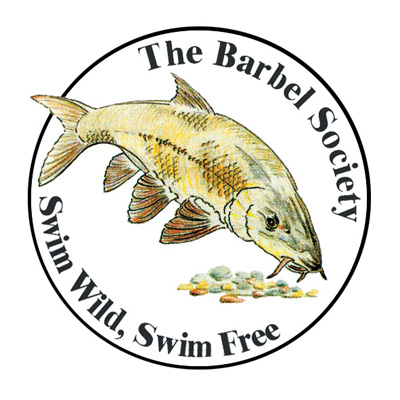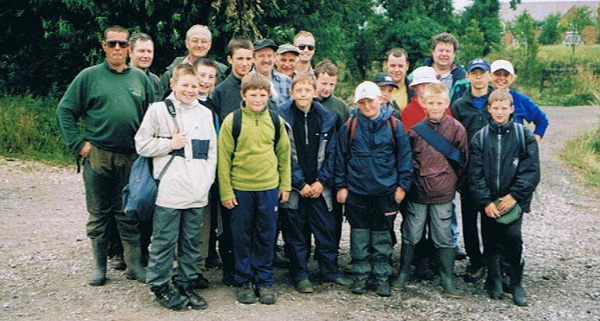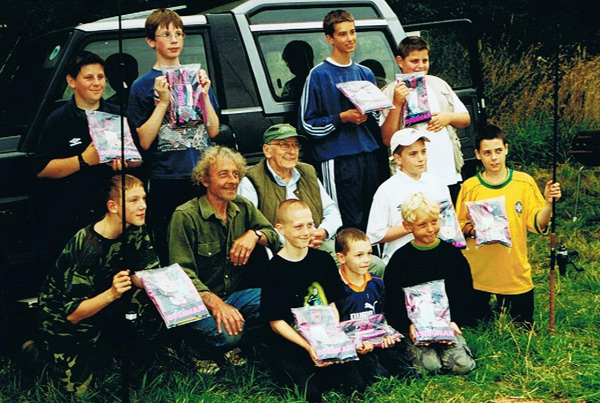In a major three-part feature Steve Pope takes a look back at the Barbel Society, which celebrates its twentieth anniversary this year.
“It was twenty years ago today
Sgt. Pepper taught the band to play”
Well, that first line is pretty much spot on, the second requires just a little more information so that John and Paul’s famous lyric fits nicely into a fishing feature.
For that most famous of sergeants you will have to transpose a then Regional Organiser from the Barbel Catcher’s Club and also the Chief Executive of Worthing Council. Not a huge difference I hear you say – but at least you get two for the price of one! Neither of us were in the business of teaching, it was more of an ‘ask’ really but we were highly organised and very persuasive. ‘Band’ though is certainly the correct word, for we were all part of a merry band of barbel addicts, not essentially brothers but we certainly all wanted to play.
 Yes, I’m talking about The Barbel Society, three words that when uttered or written in some places bring out the best in most, and the worst in a few, and put forum moderators everywhere on red alert!
Yes, I’m talking about The Barbel Society, three words that when uttered or written in some places bring out the best in most, and the worst in a few, and put forum moderators everywhere on red alert!
2015 marks the twentieth anniversary of this organisation and that fills me with great pride, it’s taken up almost half of my adult life; most modern marriages don’t last that long and twenty years down the line is as good a time as any to reflect on what we have achieved, where we have failed, and also to acknowledge – and therefore thank – those who have made significant contributions that have ensured the continued success through two decades of immense change.
Back in 1995 Spurs were the top London side, Blackburn – with Tim Sherwood as captain – were crowned champions, I can’t help thinking my team has messed up somehow! Mind you we were all still cringing at dear old Robson Green; believe it or not he was top of the charts back in those days!
But let’s keep to the Barbel Society.
It’s fair to say the key to success for any organisation is getting it right at the start. I knew the time was right, I also knew we had enough people who were prepared to get stuck in, I also had an idea of who would be doing what but we needed an endorsement from a leading player, a figurehead if you like. So when Peter Stone entered the room in the Swan at Upton upon Severn I knew we were going to succeed, he would be our figurehead and as far as I was concerned there was no one better. Peter had always been a boyhood hero of mine and I was soon to find out that here was a hero who lived up to all expectations, a very special man indeed.
We pretty much had the committee positions sorted, so much planning had already taken place and, with the confirmation that the idea was a good one, everyone set about their task. I had somehow landed myself with three jobs: membership, regions and conference. My thought process was that these positions would entail a lot of work and so I wanted to be sure someone would do it – a sort of put your money where your mouth is!
Membership-wise we reached the 1000 mark within three years and kept to that sort of number for another eight. From 2006 to 2008 the numbers held up around the 850 mark. There was a slight drop once again in 2009 but the figures have remained reasonably stable since then.
The numbers tell us that the average membership figure covering the past twenty years is around the 850 mark so we are now operating below that number and what is more significant, at half the numbers we enjoyed fifteen years ago.
Many factors have impacted on us; the most notable as far as I’m concerned is the Internet and social media. These provide lots of information free of charge and a sense of belonging although it does not replace the real thing.
The subscription has increased from £10 to £29 which is more than the rate for inflation but the costs to produce quality material has steadily increased and there are other overhead costs to factor in. My personal view is that we are at a crossroads and that is why I asked for some radical thinking as to how we can reinvent ourselves for the next twenty years. That’s for another article though and no doubt it will kick start much discussion.
My role as Membership Secretary and Regional Coordinator didn’t last long as events conspired to throw me straight into the lion’s den but it didn’t take long to get the regions in place. I’ve been going back through all the newsletters and magazines and all the relevant paperwork and some interesting facts come to light:
The maximum number of active regions in any one year was eleven, and that happened in 1998 and 2004. The average over the twenty years is eight. That’s not bad but there is room for improvement but experience has shown that you can’t force these matters, when certain aspects come together an active region is born!
Leaving aside the Cambridge region, because it operated pretty much as group of friends who met up regularly and the pub chats that have come into play from time to time, there have been close on 250 meetings held across the country. That’s an average of twelve each year. Those meetings have attracted lots of members, many non-members and have usually involved a top flight speaker. I have personally attended over sixty meetings and given talks, mostly with dear Fred Crouch, at twenty three of them. Many of those meetings are forever etched in my memory and that is the point, these regional meetings build friendships and can provide a lasting memory.
There have been at least 65 Regional Organisers and a quarter of those have served on the committee, I would like to thank them all because without someone stepping up to the mark there simply is no region! I’m pleased to see a resurgence in meetings and I have no doubt it’s because people really do prefer to chat face to face, it had almost become a thing of the past!
The third role of Conference Organiser stayed with me for a bit longer and to be honest I’m still involved to this day, albeit to a far lesser degree. I can well remember the very first show at Rushden and the massive feeling of relief when people actually came along. Since then we’ve never failed to put on a fabulous show each year with the very best in the way of speakers. Every year we worry that no one will turn up and each time we are truly grateful that the support continues to be there. I have been to every show and have enough memories and stories that would fill a couple of articles! Suffice to say I’m intensely proud of the shows we put on and sincerely hope that they continue producing memorable moments for everyone in the years to come.

Fred had made up his mind to head up the junior section and he totally committed himself to it from the off and for the first five years he, with some help and support – notably from Trefor West – organised junior events each year. Quite a few rivers featured and one event I particularly recall was held on our stretch of the lower Severn where Fred managed to gather a premier league team of anglers to help the youngsters, at the same time raising a good sum of money for the ACA. Peter Stone attended many of these junior events and as a result he and Fred formed a strong friendship.

When Fred took on the role of President in 2000 he handed over the junior reigns and the fish-ins continued for another nine years and were always popular and well supported. The junior section has been in hiatus for the past four years but things are set to change. There is a new generation out there with youngsters who I’m sure would benefit from attending a Barbel Society arranged junior day. All part of the big plans for the future.
Fish-ins for the grown-ups have always featured in the Society calendar and these have taken place on various rivers, supporting various causes and include the Barbel School which is always popular.
Not long after the Society was formed Don Caliendo joined the team and here was someone with a great depth of knowledge and a brain that was certainly in a different league to mine. A man who I am honoured to have worked alongside and someone I can call a friend, a truly special man. With Don at the helm we put together quite a portfolio of fisheries for the benefit of members. Three different sections of the Teme, six venues on the Severn and stretches on the Dane, Bristol Avon, Swale, Trent, Hampshire Avon, Gt. Ouse and Warwickshire Avon.
Over a twenty year period you can watch a picture unfold; you see how a fishery develops. This very fact makes it no easy task when ascertaining the value of a fishery to the Society. The fisheries that we have controlled all offered something different and within our financial constraints they covered a pretty wide area.
Today we control a stretch of the Trent which without doubt is one of the top barbel fisheries in the country, our length of the Teme is a stunning fishery that produces sufficient numbers of fish and the lower Severn is still producing the goods even after twenty years!
In the next part of this feature I’ll be moving on to take a look at Barbel Society publications, and to one of the most important facets of the Society’s work – research and conservation.










